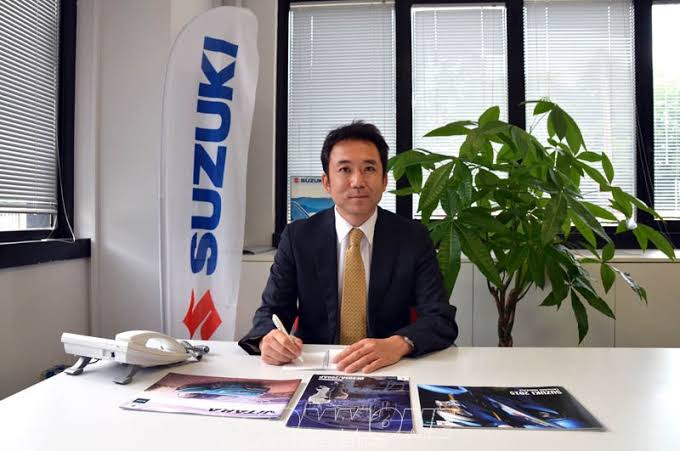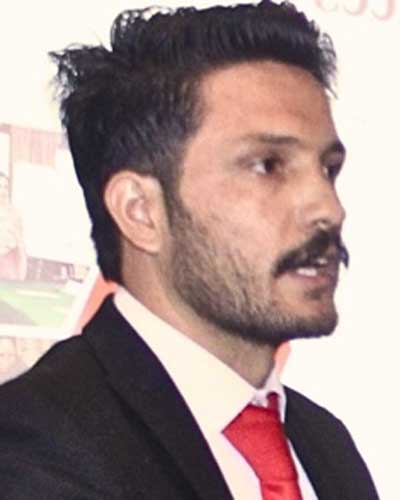Pak Suzuki Motor Company Limited (PSMCL) reaffirmed its longstanding commitment to Pakistan’s automobile industry during a media briefing led by Mr. Hiroshi Kawamura, CEO & Managing Director of PSMCL.
Reflecting on Suzuki’s pioneering journey and over four decades of presence in the country, Mr. Kawamura stated, “Pak Suzuki has always remained committed to its mission of providing affordable mobility to enrich the lives of people of Pakistan. For Suzuki, Pakistan holds a special place—it was the first country outside Japan where Suzuki began automobile production in 1975, even before the formation of Pak Suzuki in 1983.”
He added, “Over the years, Suzuki has earned the trust of over 2.5 million customers, becoming a household name synonymous with reliability and value.”
Highlighting Pak Suzuki’s commitment to the local market, Mr. Kawamura stated, “We invested PKR 17.4 billion in the development and localization of our new model Suzuki Every alone. We remain steadfast in driving economic growth and job creation in Pakistan.”
Mr. Kawamura emphasized the need for policy support from the government to drive industry growth. He urged the government to incentivize exports instead of imposing mandatory targets. Commenting on the government’s intention to enhance the Large-Scale Manufacturing (LSM) sector, he pointed out that approximately 25% of the market is occupied by imported used cars. “Curbing this could lead to a significant increase in local industry output,” he said.
He also urged the government to eliminate duty concessions for used car imports under 1300cc, as 75% of used car imports fall within this segment due to very low fixed taxes. He recommended reducing the age limit of imported vans to 3 years from the current 5-year limit.
Discussing sustainability, Mr. Kawamura said that the key focus of Pak Suzuki’s strategy for sustainable development is to rely on locally available resources. He introduced Pak Suzuki’s Biogas Project, which aims to convert bio-waste into clean and renewable fuel. “Using biogas as automobile fuel could be a breakthrough solution for Pakistan,” he stated. “It has the potential to improve the trade balance, protect the environment, and create employment in the rural areas of Pakistan.”
In conclusion, Mr. Kawamura reaffirmed Pak Suzuki’s commitment to growing alongside the people of Pakistan. He added that the company remains deeply committed to innovation, sustainability, and strengthening the local economy. He highlighted Pak Suzuki’s extensive nationwide network of 175 dealership outlets across more than 100 cities—three times larger than any other OEM in the country.
Sharing an optimistic outlook for the domestic market, he said, “The automobile CKD market is projected to grow by more than 20% this year. Pak Suzuki is well-positioned to retain its 45% market share.”
On the exports front, Mr. Kawamura noted that in the past, Pak Suzuki had exported over 3,000 Ravi pickups to Bangladesh and Nepal, along with spare parts and accessories to Europe, Japan, Vietnam, and Indonesia. He reaffirmed the company’s support for government export initiatives, stating, “We are actively exploring new markets and test marketing our products in multiple countries.”
He also highlighted Pak Suzuki’s pioneering role in developing the local vendor base in Pakistan. Over the last four decades, the company has nurtured more than 100 local parts suppliers and supported several of them through technical assistance and joint ventures. This has paved the way for the localization of high-tech parts, which are now being supplied to all other OEMs. He added, “Pak Suzuki procures approximately PKR 50 billion worth of local parts annually.”
The press conference was well-attended by numerous journalists who raised questions regarding vehicle quality and government policy. Mr. Kawamura clarified that the build quality of the Suzuki Alto in Pakistan is the same as the models manufactured in Japan. He addressed the common misperception regarding its lightweight structure, explaining that lighter cars are intentionally designed to improve fuel efficiency while still incorporating essential safety features. Responding to concerns about policy, Mr. Kawamura highlighted the contradiction in government expectations—on one hand, urging manufacturers to increase exports, and on the other, imposing a steep 45% tax on each vehicle invoice, which hampers competitiveness in international markets.




